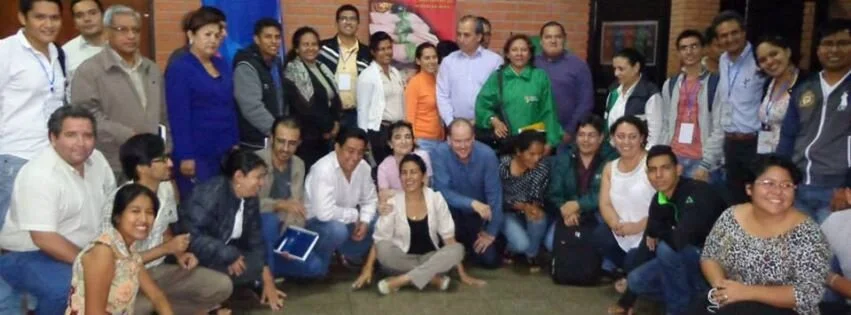Persuasive tech, youth gang violence and new pathways to shared value in Bolivia
Pervasive fears about crime erode social cohesion and trust, and push people towards isolation. The perception of insecurity in Bolivia has deteriorated significantly in recent years, overtaking unemployment, poverty, inequality or civil unrest as the main public concern. According to official estimates, young people aged 12 to 30 years perpetrate more than 80 percent of violence and insecurity in Bolivia’s major cities. How can persuasive technology and behaviour design be used to improve this situation and rebuild social capital in communities most affected by violence?
The workshop titled “Persuasive Technologies for Youth Gang Violence Prevention”, held at Universidad Privada de Santa Cruz de la Sierra (21-22 May 2014), brought together 60 technologists, government officials, scholars and community activists to rapid prototype web interventions seeking to scale positive engagement between high-risk youths and other groups, and thereby explore new models of social value and wealth creation for citizens, businesses, neighbourhoods, local governments and banking institutions. Led by Mark Nelson, Stanford Peace Innovation Lab Co-Director, the event marked the launch of the Peace Innovation Lab in Santa Cruz de la Sierra, as part of a global field lab network providing rigorous test-beds and global access to markets for technology mediated interventions that deliver positive peace.
Inaugural partners and associates include Universidad Autónoma de Gabriel René Moreno (UAGRM), Universidad Privada de Santa Cruz de la Sierra (UPSA), Fundación Trabajo Empresa, National Academy of Sciences of Bolivia (Santa Cruz Chapter), Sintesis S.A., Bolivian Chamber of Information Technologies and Open Marabunta. The UAGRM Faculty of Humanities made this short video Taller de Technologias Persuasivas of the event. https://www.youtube.com/watch?v=RJnmrkJJI7E
